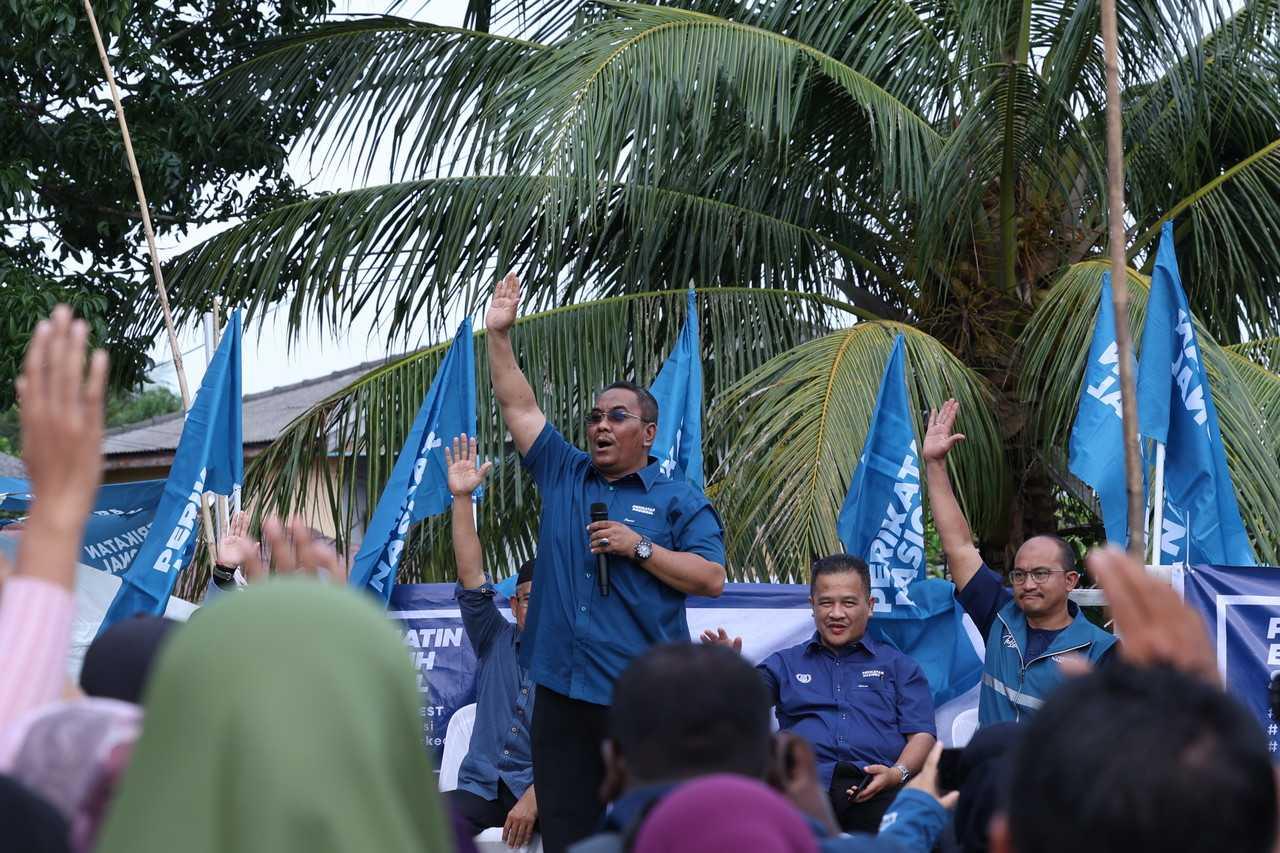Local dialects to the fore, thanks to state elections
But while the use of local dialects can win over local voters, it can also cause confusion among those unfamiliar with the way of speech.
Just In
While the recently concluded elections were a demonstration of political strength and influence among voters and at the grassroots level, they were also a showcase for the use of accents or dialects particular to individual states which, according to one academic, is a strategy for candidates keen on coming across as likeable and more approachable to the local population.
Teo Kok Seong, a fellow at the National Council of Professors, described this as a positive development towards introducing or popularising regional dialects to outside communities.
"From one point of view, Malaysians are presented with certain state dialects in addition to information and the characteristics of that dialect," he said.
"I think they can also see the message conveyed in that dialect, the use of which is well received by the locals."
Speaking to MalaysiaNow, Teo said campaign speeches that go viral are also seen by the public at large, thanks to the use of social media which transcends geographical and societal borders.
Most importantly, he said, this would reach the younger generation who might be listening to talks or campaign speeches for the first time.
"The nature of social media is that things go viral very quickly, and people throughout the country can learn what the Kedah dialect is like, as well as the dialects of Kelantan and Terengganu, and so on," he said.
"And there are regional differences as well. For example, in Hulu Terengganu the dialect is not the same as the Terengganu dialect that we are used to hearing.
"The same goes for Kedah and Penang. Even though these are northern states, the dialects are all different if they are correctly observed."
The use of local dialects was frequently observed during the campaign period for the Aug 12 elections in Selangor, Negeri Sembilan, Penang, Kedah, Kelantan and Terengganu.
At times, it was also the source of controversy, as seen in a speech by Kedah Menteri Besar Muhammad Sanusi Md Nor who used the word "betina" or "female" at an event in Sik.
While this was seen as degrading towards women candidates, Sanusi defended himself saying it was a common term for women in the area.
In Terengganu, meanwhile, the phrase "cah keting" is often heard during election season. While it originated as an expression in football, in politics it refers to acts of sabotage within an individual's own party.
And in Kelantan, PAS combined "dikir barat" with local dialect in creating its campaign song.
Sociopolitical analyst Awang Azman Awang Pawi agreed that the use of local dialects was a common strategy in election campaigns.
"State politics can be seen in terms of the widespread use of dialects, where some use thick dialects with concepts understood in the local context," Awang Azman, of Universiti Malaya's Centre for Democracy and Elections, said.
"Candidates use it to boost their influence on the local population, to show that they have a local identity and that they are different from other regions."
In the larger context, he said, the approach is also known as ethno-nationalism, or the use of local issues in order to win votes.
Nevertheless, he said, the state dialects showcased during the election campaigns were also used as a justification for validating the use of rude language against candidates' opponents.
"For example, 'kepala hotak' is said in a speech but excused as a phrase that is commonly used by the locals in the area or region.
"If we want to know if this is true or not, we would have to ask the locals themselves."
Mustafa Kamal Abdul Rahman, permanent chairman of Perikatan Nasional's (PN) Taman Jujur branch in Negeri Sembilan, said candidates in some districts had an advantage if they could speak in the local dialect.
"This was very effective in Jelebu, Rembau and Kuala Pilah," he said.
"And it was a good approach because the focus of these elections was on local issues, not issue at the national level like during general elections.
"Every candidate had his or hew own local touch to win the support of voters – not just PN, but Pakatan Harapan, too.
On the downside, he said, this was not always understood by the outside community.
"Non-locals are not used to this speech and way of life, so they get confused and opponents can take advantage of this."
Subscribe to our newsletter
To be updated with all the latest news and analyses daily.
Most Read
No articles found.
